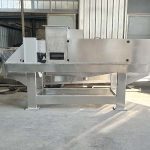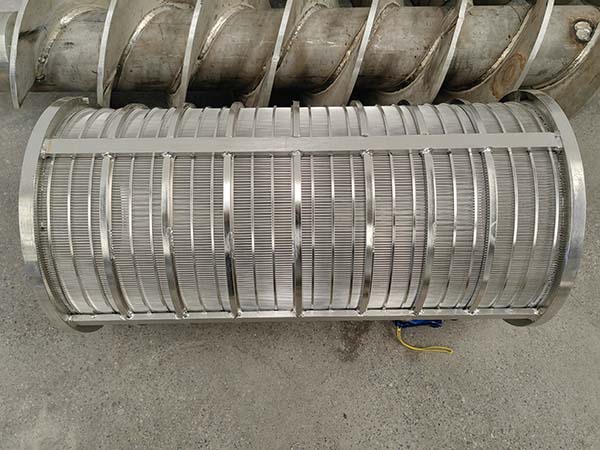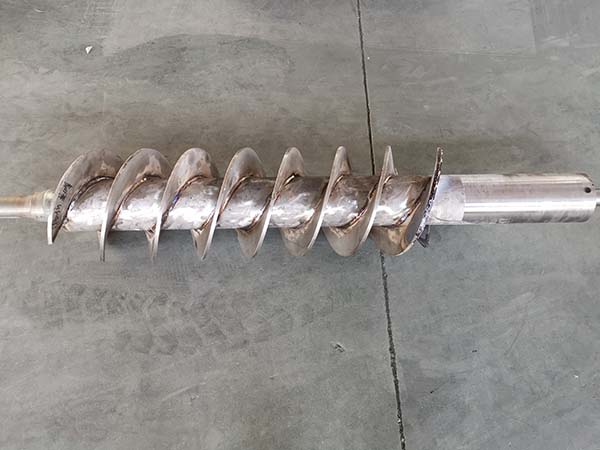
Sawdust Dewatering Machine
03/25/2025
Sawdust Dewatering Machine
03/25/2025Furui Machinery has over 15 years of experience in the industry. We understand that screw separator is critical in various applications. Whether you're processing animal waste or slurry, these machines need to run smoothly for maximum efficiency. But what happens when your machine doesn't perform as expected? Maybe the solid output is too wet, or the motor keeps overheating or oil leaking.
At Furui Machinery, we’ve helped thousands of clients worldwide with troubleshooting, maintenance, and upgrades for their manure separators. Based on our rich experience, we will outline common problems, causes, and practical solutions to help you quickly resolve issues and keep your separator in top working condition.
1. Poor Dewatering Performance
Symptoms: The solids coming out of the separator are too wet or even sludgy. It feels like the machine isn’t really separating anything.
Possible Causes:
- Clogged Screen: Solid fibers or impurities in the material can block the screen, preventing efficient water drainage.
- Worn or damaged screen mesh or using incorrect screen size.
- Worn-out Screw: A damaged or worn screw shaft or blades may fail to generate enough pressure, thereby the material won't be squeezed dry enough.
- The material is too dry or sticky.
Solutions:
- Regularly clean the screens to prevent blockages.
- Inspect the screw and screen for wear and replace it when necessary. Generally, the screw is durable and less likely to wear out quickly, but it’s recommended to keep an extra screen mesh on hand as a spare.
- Ensure the mesh is suitable for the material being processed. Remember, a finer mesh isn’t always better.
- Adjust the equipment parameters based on the material’s characteristics or pre-treat the material to ensure optimal dewatering.
2. Unusual Noises During Operation
Symptoms: You hear loud rattling, grinding, or knocking sounds while the machine is running.
Possible Causes:
- Damaged Bearings or Lack of Lubrication: Over time, bearings may wear out or lack proper lubrication, leading to friction and noise.
- Loose Screw Shaft: If the screw shaft is not properly secured, it can cause vibrations and abnormal noises.
- Foreign Objects: If hard objects like stones or metal pieces enter the separator, it will cause friction with the screw shaft or screen, thereby making noises.
Solutions:
- Check the bearings regularly and replace them if necessary. Ensure proper lubrication to reduce friction.
- Tighten the screw shaft and secure all moving parts to ensure smooth operation.
- Shut down and clean the screw chamber. If possible, use magnetic separators or other separation systems to prevent hard materials from entering the machine.
3. Motor Overheating or Sudden Shutdown
Symptoms: The machine stops mid-operation, or the motor feels unusually hot to the touch.
Possible Causes:
-
Continuous overload due to too much material or high viscosity slurry.
-
Internal motor fault or blocked cooling vents.
-
Unstable voltage supply from the grid or generator.
Solutions:
- Adjust the feed volume to stay within the machine’s rated capacity. A consistent feed is more efficient than intermittent heavy loads.
- Allow the machine to rest after long use.
- Inspect the motor and replace it if necessary.
- Use a voltage stabilizer to protect your equipment from power fluctuations.
- Don’t forget to lubricate motor-side bearings regularly—this is often overlooked!
4. Discharge Outlet is Blocked
Symptoms: The solid output stops coming out or is very slow; material backs up inside the machine.
Likely Causes:
- Uneven feeding or feeding too much at once.
- Too wet material clogging the discharge outlet.
- Improper design of the outlet (too narrow or bad angle).
Solutions:
-
Stop the machine and clean the outlet.
-
Adjust feeding volume and material consistency.
-
If needed, modify the outlet design - we can help with custom solutions.
5. Feeding Issues
Symptoms: Material doesn’t enter the separator at all, or flow is inconsistent.
Possible Causes:
- Blocked Feed Inlet: A clogged feed inlet can prevent material from entering the manure separator.
- Damaged Feed Pump: A malfunctioning feed pump may not effectively transport the material.
Solutions:
- Clear any blockages in the feed inlet.
- Replace the feed pump if it's damaged or malfunctioning.
6. Oil Leakage
Symptoms: You notice oil around seals or underneath the machine.
Likely Causes:
- Aging Seals: Over time, seals may wear out or become brittle, leading to oil leakage.
- Excess Lubrication: Too much oil can cause it to leak from the seals. Please refer to our user manual.
- Loose pipe or valve connections.
Solutions:
- Replace aging seals to prevent leaks.
- Add the correct amount of lubrication oil only.
- Tighten all joints and inspect the valve and pump installation.
7. Excessive Vibration
Symptoms: The machine shakes more than usual, creating noise and instability.
Possible Causes:
- Uneven Installation: If the equipment is not installed on a stable surface, it can cause vibration.
- Bent or worn screw shaft creating imbalance.
Solutions:
- Reinstall the equipment on a level and stable surface to minimize vibrations.
- Inspect and replace the screw shaft if it’s warped or uneven.
8. Damaged Screen
Symptoms: Solid particles leak into the liquid outlet, or screen holes are visibly torn.The machine shakes more than usual, creating noise and instability.
Possible Causes:
- Hard impurities (metal, stones) in the manure.
- Using a screen that is not durable enough for the specific material.
Solutions:
-
Install a pre-screening system to remove hard materials before they enter the separator.
-
Choose a more durable screen material suited for the type of material being processed. At Furui Machinery, our screen and screw are made of stainless steel to ensure durability.

Screen

Screw
Rugular Maintenance Tips
Many of the problems above can be prevented with routine maintenance. Furui Machinery recommends the following:
- Clean the interior regularly, including the filter, pump, screen and screw shaft.
- Avoid overloading – follow the rated capacity.
- Weekly Inspections: Check for wear and replace parts as needed.
- Lubricate Regularly: Don’t skip this step - Perform scheduled lubrication of moving parts to reduce friction and wear - it will reduce your maintenance costs.
Need Technical Support?
Furui Machinery has been a trusted name in this industry for over 15 years, proudly serving more than 1,500 clients worldwide. If you're currently facing any of the challenges mentioned above or have questions about our equipment and solutions, don't hesitate to get in touch with our team. We’re here to help your operation run smoothly.
